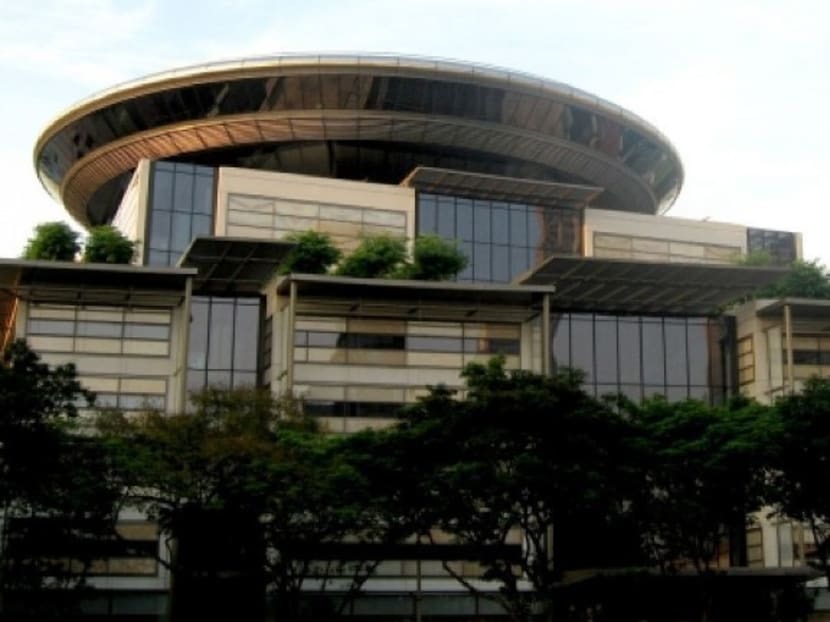Anti-harassment Act not for Govt, firms: High Court
SINGAPORE — Only individuals, not corporations or the Government, may seek redress against false statements under the Protection from Harassment Act (POHA), ruled the High Court today (Dec 9) as it granted the appeal of doctor-inventor Ting Choon Meng and five individuals behind The Online Citizen (TOC) website.
SINGAPORE — Only individuals, not corporations or the Government, may seek redress against false statements under the Protection from Harassment Act (POHA), ruled the High Court today (Dec 9) as it granted the appeal of doctor-inventor Ting Choon Meng and five individuals behind The Online Citizen (TOC) website.
Judicial commissioner See Kee Oon overturned an earlier ruling by a district judge. The judge had said that certain statements by Dr Ting could not be published unless they came with a notification that the statements had been declared false by Singapore courts and that the truth of the matter could be found in a statement published by the Ministry of Defence (MINDEF).
MINDEF had sought redress under the Act after the TOC in January published statements by Dr Ting about a patent dispute between his company MobileStats Technologies and MINDEF. The district judge ruled that MINDEF should be considered a “person” under the statute, despite the appellants’ argument that the Act, which took effect last November, was intended for use by individuals.
Mr See said that the POHA section that allows a District Court to make certain orders against false statements made should be confined to false statements capable of affecting their subjects emotionally or psychologically. Hence, the subject of the statements must be a human being, and not a corporation or the Government. The parliamentary debate that took place before the law was passed strongly suggests that the “true mischief” that the section aimed to address was the psychological impact of a false statement on its subject, he added.
The judge disagreed with the Attorney-General that all false statements, including those made against the Government, should be within reach of the POHA. But individuals may still turn to POHA for allegations against entities that are, in substance, against the people behind the entities. Outcomes will depend on the facts of each case, he said.
Lawyers welcomed the clarity provided by the judgment today. The ruling “makes absolute sense” because the POHA is meant for “living, breathing individuals who can be psychologically affected”, said lawyer Alfred Dodwell. “This ruling actually prevents (the opening of the) floodgates of misapplication of this Act, so it is to be welcomed,” he said.
The judgment is “highly significant” for clarifying that only human beings, and not the Government or a corporate entity, can seek remedies under POHA, said lawyer Tan Hee Joek. “Until this judgment, it was doubtful what the law was on this issue, and it is good for the public that the court has settled this important issue.” Mr Tan also welcomed the High Court’s “elucidation of the factors to consider before deciding if it would be just and equitable to issue an order” to tackle a false statement.
Mr See said the courts should be slower to grant an order in cases where false statements of fact are relatively minor, where the subject has suffered no psychological or emotional impact and has the means to publish widely his or her own version of the truth, and where the statement’s author has made genuine and substantial effort to point out that the truth of his statement is not undisputed.
The TOC had published MINDEF’s statement in full and provided a link from its article containing the video interview with Dr Ting. “Such efforts to present each party’s side of a story ought to be encouraged, and in my judgment they would be discouraged if ... orders were made as a matter of course despite these efforts having been made,” said Mr See.
Dr Ting’s allegation “cannot be said to have gone anywhere near seriously impugning the core or essence of MINDEF’s identity or ‘character’ or ‘personality’”. MINDEF’s comments were published online and in traditional media fairly extensively, and it would not have been just and equitable to grant the order sought by the Attorney-General, said Mr See.
The five individuals behind TOC in the appeal are Mr Howard Lee Kwai Hou (who interviewed Dr Ting), Mr Xu Yuen Chen, Mr Andrew Loh Hong Puey, Mr Choo Zheng Xi (Dr Ting’s lawyer) and Mr Lee Song Kwang.
In response to TODAY’s queries, MINDEF said it will study the court’s grounds of decision with the Attorney-General’s Chambers before deciding on its next course of action.







